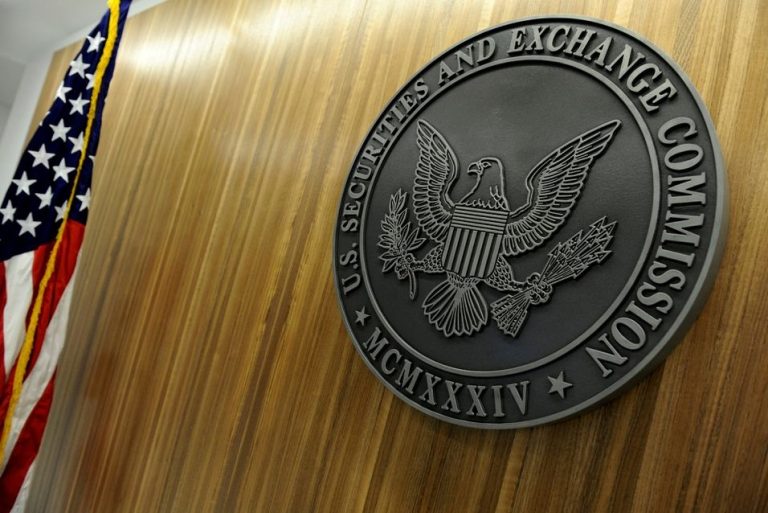
The Security and Exchange Commission [SEC] is suing Do Hyeong Kwon and Terraform Labs, the issuer of collapsed algorithm stablecoin UST and Crypto tokens, LUNA now LUNC Blockchain for instituting Crypto pyramid schemes. A very interesting fact is that the SEC is being more thorough than usual, specifically running through the Howey Test for various assets (UST, LUNA, and wLUNA).
The Luna crypto crash was caused by its connection to TerraUSD (UST), the algorithmic stablecoin of the Terra network. On May 7, over $2 billion was wiped from the global Cryptocurrency market. When the Luna crypto network collapsed, it’s estimated that $60 billion got wiped out of the digital currency space in general. But the ‘Steady lad, deploying Capital’ crooner couldn’t salvage the deteriorating situations.
Algorithmic stablecoins (UST) are not the same as Tether or USD Coin, which are backed by actual dollars or assets stored in a bank. Terraform Labs created the UST coin to be an algorithmic stablecoin on the Terra network. While other stablecoins (USDC or Tether) are fiat-backed, the UST would not be backed by real assets. Instead, the value of UST would be backed by its sister token, Luna. Once Luna plumage the support level for UST Depegged leaving many investors in oblivion.
Register for Tekedia Mini-MBA edition 16 (Feb 10 – May 3, 2025) today for early bird discounts.
Tekedia AI in Business Masterclass opens registrations.
Join Tekedia Capital Syndicate and co-invest in great global startups.
Register to become a better CEO or Director with Tekedia CEO & Director Program.
An arrest warrant was issued on Do Kwon by the South Korean government around November 2022, but the co-founder of Terraform Labs where the sister tokens Luna and TerraUSD were held absconded seeking asylum in Seychelles.
Apparently a new twist has surfaced, the US Security and Exchange Commission is suing Do-Kwon and Terraform Labs, SEC tweeted on 16th February, 2023 “Today we charged Singapore-based Terraform Labs PTE Ltd and Do Hyeong Kwon with orchestrating a multi-billion-dollar crypto asset securities fraud involving an algorithmic stablecoin and other crypto asset securities.”
We allege that Terraform and Do Kwon failed to provide the public with full, fair, and truthful disclosure as required for a host of crypto asset securities, most notably for LUNA and Terra USD,” said SEC Chair Gary Gensler. “We also allege that they committed fraud by repeating false and misleading statements to build trust before causing devastating losses for investors.”
Read SEC’s official Press Release
The Securities and Exchange Commission today charged Singapore-based Terraform Labs PTE Ltd and Do Hyeong Kwon with orchestrating a multi-billion dollar crypto asset securities fraud involving an algorithmic stablecoin and other crypto asset securities.
According to the SEC’s complaint, from April 2018 until the scheme’s collapse in May 2022, Terraform and Kwon raised billions of dollars from investors by offering and selling an inter-connected suite of crypto asset securities, many in unregistered transactions. These included “mAssets,” security-based swaps designed to pay returns by mirroring the price of stocks of US companies, and Terra USD (UST), a crypto asset security referred to as an “algorithmic stablecoin” that supposedly maintained its peg to the U.S. dollar by being interchangeable for another of the defendants’ crypto asset securities, LUNA. The complaint further alleges that Terraform and Kwon offered and sold investors other means to invest in their crypto empire, including the crypto asset security tokens MIR—or “mirror” tokens—and LUNA itself.
The SEC’s complaint alleges that Terraform and Kwon marketed crypto asset securities to investors seeking to earn a profit, repeatedly claiming that the tokens would increase in value. For example, they touted and marketed UST as a “yield-bearing” stablecoin, which they advertised as paying as much as 20 percent interest through the Anchor Protocol.
The SEC’s complaint also alleges that, while marketing the LUNA token, Terraform and Kwon repeatedly misled and deceived investors that a popular Korean mobile payment application used the Terra blockchain to settle transactions that would accrue value to LUNA. Meanwhile, Terraform and Kwon also allegedly misled investors about the stability of UST. In May 2022, UST depegged from the U.S. dollar, and the price of it and its sister tokens plummeted to close to zero.
“We allege that Terraform and Do Kwon failed to provide the public with full, fair, and truthful disclosure as required for a host of crypto asset securities, most notably for LUNA and Terra USD,” said SEC Chair Gary Gensler. “We also allege that they committed fraud by repeating false and misleading statements to build trust before causing devastating losses for investors.”
“I commend the SEC’s hard-working staff who remained vigilant in such an important investigation, even when the defendants attempted to prevent us from obtaining important information about their business,” Chair Gensler added. “This case demonstrates the lengths to which some crypto firms will go to avoid complying with the securities laws, but it also demonstrates the strength and commitment of the SEC’s dedicated public servants.”
“Today’s action not only holds the defendants accountable for their roles in Terra’s collapse, which devastated both retail and institutional investors and sent shock waves through the crypto markets, but once again highlights that we look to the economic realities of an offering, not the labels put on it,” said Gurbir S. Grewal, Director of the SEC’s Division of Enforcement. “As alleged in our complaint, the Terraform ecosystem was neither decentralized, nor finance. It was simply a fraud propped up by a so-called algorithmic “stablecoin” – the price of which was controlled by the defendants, not any code.”
The complaint, filed in the U.S. District Court for the Southern District of New York, charges the defendants with violating the registration and anti-fraud provisions of the Securities Act and the Exchange Act.



